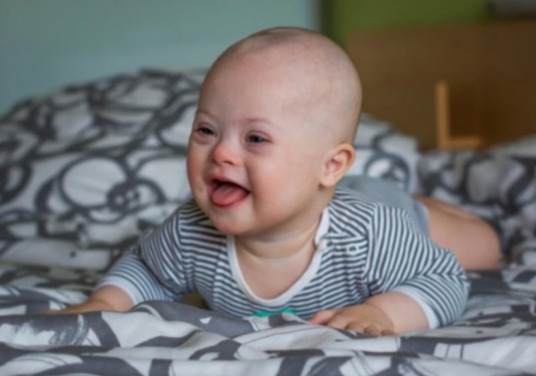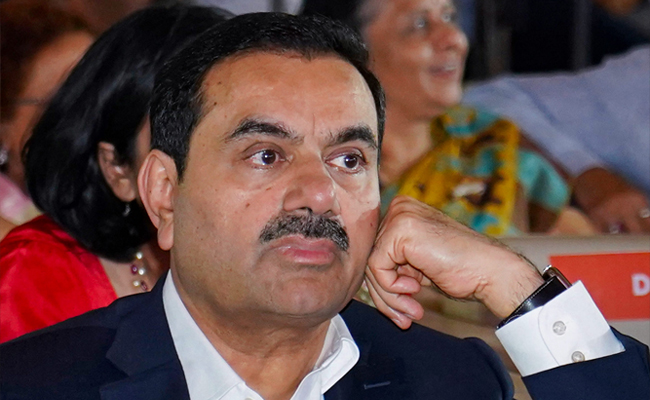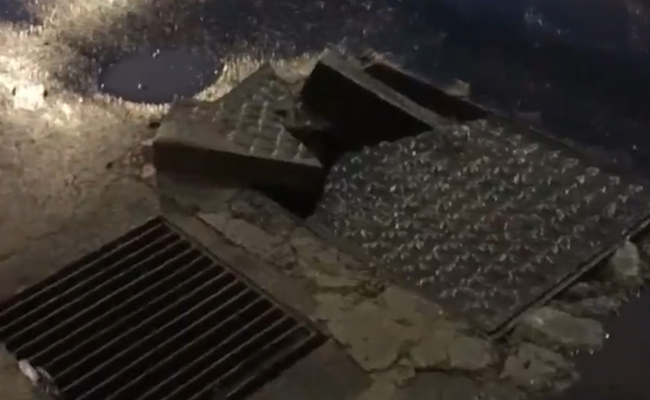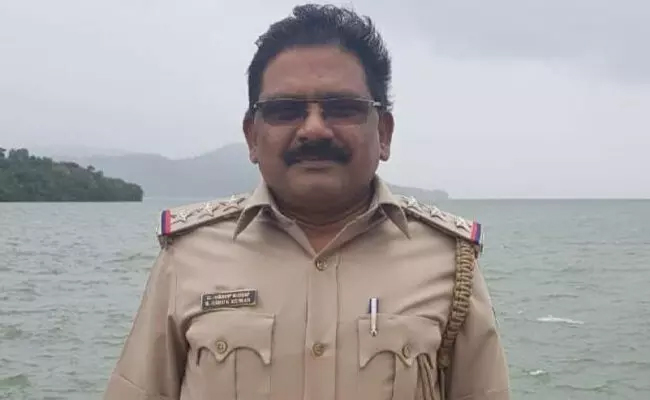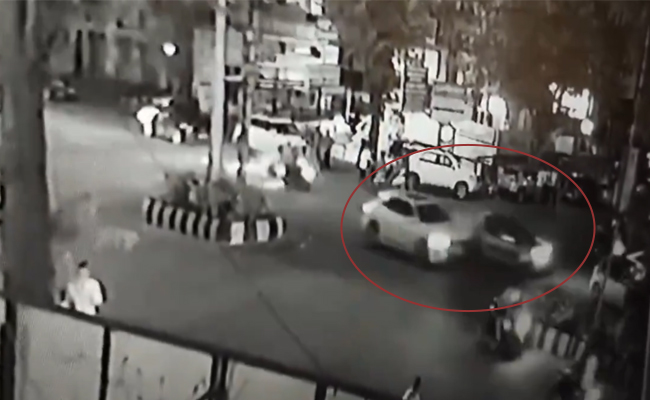New Delhi (PTI): Of the 18,179 adoptions recorded since 2019, only 1,404 involved children with special needs even as the absolute numbers of adoptions saw an increase over the next five years, according to official data.
Though the number of children with special needs for adoption has risen, the adoption rate is still significantly low, activists pointed out.
Children with special needs require additional support due to physical, developmental, behavioural or emotional challenges.
In 2019-20, India saw a total of 3,745 adoptions -- 3,351 in-country and 394 international. Of the total number, only 56 boys and 110 girls with special needs were adopted, the Central Adoption Resource Authority (CARA) said in its response to an RTI query filed by PTI.
In 2020-21, a total of 3,559 adoptions were recorded including 3,142 in-country and 417 inter-country. Only 110 boys and 133 girls with special needs were adopted in this year.
The number of adoptions dropped marginally to 3,405 -- 2,991 in-country and 414 international -- in 2021-22. The total number of adoptions included 136 boys and 206 girls with special needs.
In 2022-23, 3,441 adoptions -- 3,010 in-country and 431 inter-country -- were recorded, with 156 boys and 188 girls with special needs finding adoptive families.
The number of adoptions in 2023-24 increased significantly to 4,029 -- 3,580 in-country and 449 international. These included 135 boys and 174 girls with special needs.
Adoptions of children with special needs have shown a marked increase over the past five years. Despite a slight dip in 2023-24, the overall trend indicates a growing acceptance of children with special needs among prospective adoptive parents.
But challenges persist including the fact that a significant proportion of children available for adoption fall into this category.
As of July 5, 2024, 420 children with special needs were waiting for adoption in childcare institutions across India, according to CARA.
Citing data from CARA's Child Adoption Resource Information and Guidance System (CARINGS), the founder of NGO Families of Joy Avinash Kumar said that as of July 2024, 76 per cent of the 1,709 children legally available for adoption were those with special needs.
These figures are stark, especially when compared to the dwindling number of healthy children available for adoption.
Only 25 healthy children under the age of two are available for adoption nationwide, making up just 1 per cent of the total. In 19 states, there are no healthy children below the age of 10 available for adoption, highlighting broader challenges within India's adoption system, Avinash Kumar said.
The classification of children with special needs remains contentious.
Former CARA CEO Deepak Kumar said, "Even those children who have got a minor correctable disease or ailment, which over a period of time may no longer classify them as special needs, are still labelled as such for the purpose of adoption."
This broad classification includes children with developmental delays or minor physical conditions like a cleft palate, which can be surgically corrected.
"Parents are very wary of adopting a child with even minor correctable issues, leading to a preference for perfectly healthy children as per the age profile," Deepak Kumar said.
This reluctance often results in these children being placed in inter-country adoptions, where they are more likely to find families willing to support them. In other countries, a more comprehensive support system for children with special needs exists.
"In other countries, parents adopting children with special needs are given a lot of facilities, including allowances and planned surgeries. They are well looked after, which is why these children find homes more easily abroad," the former CARA CEO said.
The current approach to categorising and labelling children with special needs has faced criticism.
Avinash Kumar described CARA's categorisation system as "regressive". He said the term 'special needs' carries a negative connotation and makes it hard for children to be placed with adoptive families.
"The categorisation and definition of special needs is itself regressive in CARA. If a child has the smallest of impairments, they are dumped into the special needs category," he said.
Avinash Kumar said he led a task force to redefine the categorisation but despite numerous suggestions, little has changed.
"We suggested that instead of labelling children as special needs, they should simply be called children. Any child who has been traumatised and cut off from their family needs more love and care. They may appear to be physically fine but will still require special empathy and support," he said.
He also emphasised the need for a more nuanced approach to categorising these children.
"Instead of dumping all children into one category, there should be gradations and efforts should be made to educate both the parents and the child about their specific needs," he suggested.
Despite significant challenges, Deepak Kumar said there are signs of a gradual change in attitudes towards the adoption of children with special needs in India due to increased dissemination of information and changing social attitudes.
He said that during his tenure as CARA CEO, he observed an increased preference for girls over boys among adoptive parents and this has grown further in recent years.
"When I was there (CARA), about 30-35 per cent of people opted for boys, 40-45 per cent for girls and the remaining 15-20 per cent gave no preference. Now, the number of parents wanting to adopt girls is slightly higher than those who want to adopt boys," he said.
Let the Truth be known. If you read VB and like VB, please be a VB Supporter and Help us deliver the Truth to one and all.
New Delhi (PTI): Swiss authorities have frozen USD 311 million (Rs 2,610 crore) held by a Taiwanese resident in multiple Swiss bank accounts as part of money laundering probe, suspecting he may be a frontman from the Adani group -- a charge the conglomerate vehemently denied saying it was neither involved in any Swiss court proceedings nor any of its accounts are subject to sequestration.
US-based short-seller Hindenburg Research, which had last year targeted the Adani group in a damning report that led to wiping away of USD 150 billion in market value of listed firms of the conglomerate in the following weeks, in a post on X cited "newly released Swiss criminal records reported by Swiss media outlet" to state that "Swiss authorities have frozen more than $310 million in funds across multiple Swiss bank accounts as part of a money laundering and securities forgery investigation into Adani, dating back as early as 2021."
"Prosecutors detailed how an Adani frontman invested in opaque BVI/Mauritius & Bermuda funds that almost exclusively owned Adani stocks," it said citing the report.
Adani group rejected the allegations as baseless saying it had no involvement in any Swiss court proceedings.
"We unequivocally reject and deny the baseless allegations presented. The Adani Group has no involvement in any Swiss court proceedings, nor have any of our company accounts been subject to sequestration by any authority," it said.
The Swiss media outlet Gotham City in its report stated that a ruling by the Federal Criminal Court (FCC) reveals that the Geneva Public Prosecutor's Office was investigating alleged wrongdoing and more than USD 310 million belonging to an alleged front man for billionaire Gautam Adani have been sequestered in five Swiss banks over the last three years.
The Swiss investigators suspect that the associate, Chang Chung-Ling, is not the ultimate beneficial owner (UBO) of the company under investigation, but a mere front.
The Adani Group, however, said that the court order was not linked to them and they have not been mentioned in it.
"Even in the alleged order, the Swiss court has neither mentioned our group companies, nor have we received any requests for clarification or information from any such authority or regulatory body. We reiterate that our overseas holding structure is transparent, fully disclosed, and compliant with all relevant laws," the conglomerate said.
The allegations, it said, "are clearly preposterous, irrational, and absurd. We have no hesitation in stating that this is yet another orchestrated and egregious attempt by the same cohorts acting in unison to inflict irreversible damage on our group's reputation and market value."
"The Adani Group remains steadfastly committed to transparency and compliance with all legal and regulatory requirements," it said.
The name of Chang Chung-Ling had first surfaced in the 2023 Hindenburg report that alleged stock market manipulation, accounting fraud and money laundering at Adani Group. Adani Group has repeatedly denied all charges.
He was alleged to have made substantial profits by buying and selling Adani stocks through offshore funds and that he was the sole director of Growmore, allegedly a shell company based in Mauritius used to siphon off funds.
According to Hindenburg, Growmore netted an overnight USD 423 million gain through a stock merger with Adani Power.
Chung-Ling's son, Chang Chien-Ting was identified as the alleged sole beneficial owner of PMC Projects (India), which along with Growmore and Adani Global were firms that were investigated by SEBI over related-party transactions. The outcome of the SEBI probe is not known.
According to the Swiss media report, a court order of August 9, 2024, which was published on September 10, 2024, stated that the Adani Group is "suspected of engaging in illicit activities, including money laundering and embezzlement".
An entity controlled by Chang Chung-Ling invested substantial amounts of money entrusted to him by the Adani Group in "opaque funds".
Hindenburg claimed that criminal court records show in detail how an Adani frontman invested in opaque BVI/Mauritius and Bermuda funds that almost exclusively owned Adani stock.

